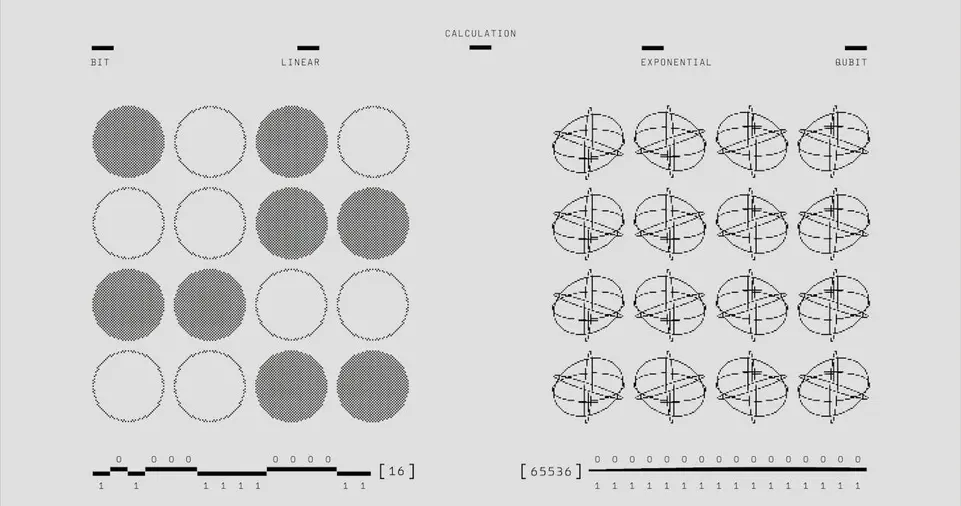Quantum computing leverages quantum mechanics to solve computational problems far beyond the reach of classical computers. It promises breakthroughs in cryptography, healthcare, and materials science.
To master this field, you must understand foundational concepts like qubits, superposition, entanglement, and quantum algorithms, as well as essential mathematics and quantum mechanics principles.
This guide provides a step-by-step approach, from building a solid mathematical foundation to writing and running your first quantum program.
You will gain a clear roadmap for mastering the basics of quantum computing, from theoretical principles to practical applications.
What You’ll Learn from This Article
- What quantum computing is and why it matters.
- The mathematical and quantum mechanics principles needed to get started.
- How quantum computers operate differently from classical systems.
- An introduction to quantum programming and essential tools.
- Applications, challenges, and the future of quantum computing.
What Is Quantum Computing?
Quantum computing is a revolutionary technology that leverages the principles of quantum mechanics to solve problems that classical computers struggle to handle efficiently.
At its core, quantum computing uses qubits instead of classical bits. Qubits can exist as 0, 1, or both simultaneously (a phenomenon called superposition). Additionally, qubits can be entangled, allowing them to share states instantaneously regardless of distance.
This unique capability enables quantum computers to perform calculations in parallel, making them ideal for tasks like cryptography, optimization, and simulation.
How Quantum Computing Differs from Classical Computing
| Aspect | Classical Computing | Quantum Computing |
|---|---|---|
| Data Units | Bits (0 or 1) | Qubits (0, 1, or both) |
| Processing | Sequential | Parallel |
| Operations | Logic gates (AND, OR, NOT) | Quantum gates (Hadamard, CNOT) |
| Strengths | Everyday computing tasks | Complex, large-scale problems |
ALSO READ: How to Choose the Right Flooring for Every Room in Your Home
Key Concepts of Quantum Computing
Superposition
Superposition allows qubits to represent multiple states simultaneously, increasing the computational power exponentially.
- Example: Imagine flipping a coin—it can be heads, tails, or spinning in between. A qubit is like the spinning coin, representing all possibilities until observed.
Entanglement
Entanglement is a phenomenon where two qubits are linked so that the state of one directly affects the other, even across vast distances.
- Application: Enables faster communication and more secure cryptographic systems.
Quantum Gates
Quantum gates manipulate qubits, performing operations that are fundamental to quantum algorithms.
| Quantum Gate | Function | Example Use |
|---|---|---|
| Hadamard Gate | Creates superposition. | Prepares qubits for parallel computing. |
| CNOT Gate | Entangles qubits. | Forms the basis of quantum algorithms. |
| Pauli-X Gate | Flips qubit states. | Analogous to a classical NOT gate. |
Mathematical Foundations of Quantum Computing

Mathematics is essential for understanding quantum computing. Here are the key areas you need to master:
Linear Algebra
Linear algebra is the backbone of quantum mechanics and computing.
| Concept | Definition | Application |
|---|---|---|
| Vectors | Represent quantum states. | Define the position and probability of qubits. |
| Matrices | Describe quantum gates. | Perform transformations on qubits. |
| Eigenvectors | Represent stable states. | Analyze quantum system properties. |
Complex Numbers
Quantum states often involve complex numbers, which include real and imaginary components (e.g., a+bia + bia+bi).
Set Theory
Used to define quantum states and operations.
By mastering these mathematical concepts, you can interpret quantum systems and algorithms effectively.
Understanding Quantum Mechanics
Quantum mechanics provides the theoretical foundation for quantum computing. Here are the basics you need to know:
- Wave-Particle Duality: Particles like electrons exhibit properties of both waves and particles, depending on how they are observed.
- The Uncertainty Principle: You cannot precisely measure both the position and momentum of a particle simultaneously.
- Superposition and Entanglement: These phenomena are the pillars of quantum mechanics, enabling quantum computing to perform at a level beyond classical systems.
Introduction to Quantum Programming
Quantum programming allows you to experiment with quantum algorithms. Here’s how to get started:
Quantum Programming Frameworks
| Framework | Language Used | Features |
|---|---|---|
| IBM Quantum Experience | Qiskit (Python) | Free access to quantum processors. |
| Microsoft QDK | Q# | Ideal for developing complex quantum algorithms. |
| Google Cirq | Python | Focused on building custom quantum circuits. |
Writing Your First Quantum Program
Here’s an example of creating a superposition state using Qiskit:
#Python Codefrom qiskit import QuantumCircuit
qc = QuantumCircuit(1)
qc.h(0) # Apply Hadamard gate to qubit 0
qc.measure_all()
qc.draw('mpl')
Applications of Quantum Computing

Quantum computing is already making an impact in various fields:
- Cryptography: Quantum computers can crack traditional encryption but also enable quantum-safe cryptographic systems.
- Drug Discovery: Simulate molecular interactions for faster drug development.
- Artificial Intelligence: Enhance machine learning algorithms by processing data more efficiently.
- Financial Modeling: Optimize portfolios and improve risk assessments.
- Logistics: Solve complex optimization problems, such as route planning.
Challenges in Quantum Computing
Quantum computing is still in its early stages and faces several challenges:
| Challenge | Description |
|---|---|
| Hardware Stability | Issues like decoherence and error rates. |
| High Costs | Quantum systems are expensive to build and maintain. |
| Talent Shortage | The field lacks a sufficient number of experts. |
The Future of Quantum Computing
Quantum computing has the potential to revolutionize industries, from healthcare to cybersecurity.
Governments and corporations are investing heavily in research to overcome current limitations.
Over the next few decades, we can expect advancements in hardware, algorithms, and practical applications.
ALSO READ: Transform Your Bathroom on a Budget: Affordable Upgrades for a Spa-Like Feel
Conclusion
Quantum computing is a groundbreaking field that offers solutions to problems previously thought unsolvable.
By mastering the basics of mathematics, quantum mechanics, and programming, you can start your journey into this fascinating world.
With tools like Qiskit and IBM Quantum Experience, even beginners can experiment with quantum algorithms.
Now is the time to dive in and explore the limitless possibilities of quantum computing!
Frequently Asked Questions
Q: Do I need a physics background to learn quantum computing?
A: No, but understanding basic quantum mechanics is helpful.
Q: Can I experiment with quantum computing at home?
A: Yes, platforms like IBM Quantum Experience allow you to run quantum algorithms on cloud-based processors.
Q: Is quantum computing a secure technology?
A: Quantum cryptography is highly secure, but quantum computers can potentially break current encryption methods.

